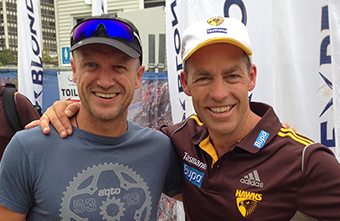THREE CHARACTERISTICS OF EFFECTIVE TEAMSPART THREE
Linton Chalmers
A big part of my job is working with leadership teams to increase their performance and building effective teams. In the first two articles of this series, I looked at teams having comfort with conflict and also holding a uniformed purpose. The final characteristic that I wanted to focus on is teams having accountability that isn’t just task focused. They have behavioural accountability as well.
Accountability for behaviours, not just tasks.
The natural flow from point two, is holding each other accountable.
- In underperforming teams there is no accountability.
- In average teams there is management led accountability.
- In high performing teams, there is peer to peer accountability.
This accountability is not just task focused, but also behavioural.
Recently I spend two days working with a departmental leadership team of a large organisation. After spending the first morning with the group, I realised that the team was much more dysfunctional than I had been told. I asked them to individually rank the performance of the team from 1 – 10, and when they shared their numbers, they were all over 7. Sensing something wasn’t quite right, I interjected. ‘Hang on…I’m not talking about what you produce, I’m talking about how you perform as a team. Do the scoring again.’ This time around, every number was at least cut in half. It turns out that while the rest of the organisation thought they were brilliant because of their output, they were all working close to eighty hour weeks, on the brink of burnout, and about to strangle each other. If ‘what good looks like’ is only task focused, not behavioural, it’s a short term and ultimately unfruitful approach.
The good news is that it doesn’t need to be that hard. Let me use the common analogy of gaming. Think about a group of eleven year olds playing a team based online game together, communicating through headsets as they attempt to storm a castle. With this very clear goal in mind, consider their behaviour: one calls to the other, ‘Great job! How did you do that? Can you show me?’ Or ‘Hey, you left me alone back there! Don’t do that next time or our whole team will lose.’ Completely intuitively, without any knowledge of corporate best practice, they are working together collaboratively, holding each other accountable and giving instant feedback. The behaviours we so desire in our teams being demonstrated by children, simply because they have a unified focus and shared commitment to achieving it. Accountability is actually pretty intrinsic if everyone is heading in the same direction, and they’re willing to have the difficult conversations – everyone will benefit because of it!
Whether you’re the team leader or not, I would argue you have a responsibility to drive positive change in the team you’re in. Remember, culture is just the collective behaviours of a group of people – if you want to change the culture, the only thing you can control is your own behaviour.
Start demonstrating these characteristics of high performing teams that I’ve referenced here in these three articles, ask the hard questions (in the right way) and I’m confident your work experience and those of your team mates will be better because of it.
Keen to know more about how to implement these and other initiatives at your next team get together? We’d love to chat about our how we can help. To start your thinking, let's talk to find out what's possible.
RELATED ARTICLE
Serious Play
As children most of us have experienced the sheer joy of bouncing on a jumping castle, or the…
THINGS TO #REMEMBER POST COVID – 19
There is a lot of upside in all the downside with important lessons to hold on to when “normal”…
An Answer to the Question ‘Why’?
Inspired by clients and Phuel's favourite question - 'Why?' Dean tells us how Phuel came to launch…
FOLLOW THE LEADER – LESSONS IN ACCEPTING ADVERSITY
Nathy's salsa classes are teaching her more than dance moves - learning to let go and being…
THE LEARNING CURVE: MORE LESSONS FROM THE LATIN DANCEFLOOR
Through taking salsa classes, Nathy observes how different learning styles can impact our team or…
MORE FEEDBACK PLEASE (SAYS NO ONE – EVER). MORE LESSONS FROM THE DANCEFLOOR
If you have someone shining a spotlight on areas of your performance that could be improved upon –…
WHAT BUSINESS LEADERS CAN LEARN FROM BASKETBALL & POINT GUARDS?
Employ three fundamentals of basketball to increase engagement and effectiveness in teams.
LESSONS LEARNT FROM 14YRS AT PHUEL & THE HAWTHORN FOOTBALL CLUB
What can we learn from the inevitable changes we face in our teams and how to embrace this change.
THREE CHARACTERISTICS OF EFFECTIVE TEAMS – PART ONE
Agreeing for the sake of agreement is inefficient, and counter to working together well. Consider…
THREE CHARACTERISTICS OF EFFECTIVE TEAMS – PART TWO
Teams will thrive when individual roles are aligned to the team's purpose so that everyone is…
CHANGE THE WAY YOU CONFERENCE
A well-staged conference can be a turning point in an organisation’s behavior. Consider how to…











